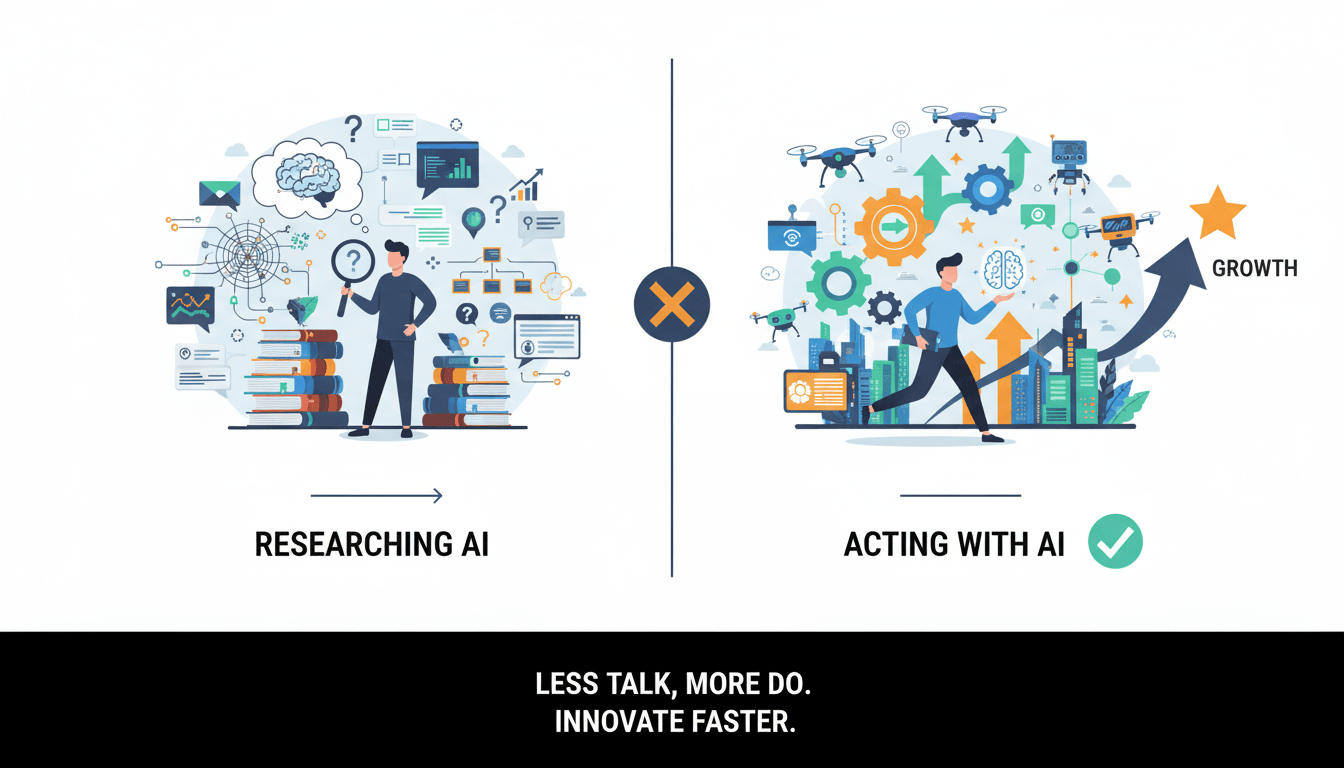· The Rapid Architect Team · AI · 2 min read
Transforming Inventory Management with AI Agents: A Practical SMB Use Case
Medium-sized businesses in traditional sectors are discovering the powerful benefits of AI and machine learning. This case study explores how a regional hardware store chain successfully employed AI agents to streamline inventory management, significantly reducing costs and boosting operational efficiency.

Transforming Inventory Management with AI Agents: A Practical SMB Use Case
Medium-sized businesses, even those in traditional industries like retail, are finding remarkable efficiency gains through Artificial Intelligence (AI) and Machine Learning (ML). This article outlines how East Coast Hardware, a regional hardware store chain, successfully adopted AI agents to address a critical business challenge: inventory management.
The Challenge: Manual Inventory Inefficiencies
East Coast Hardware, operating several stores across multiple towns, faced significant inventory management challenges:
- Overstocking and Stockouts: Manual inventory tracking led to inaccurate forecasts, resulting in either excess inventory or frequent stockouts.
- Costly Manual Tracking: Employees spent substantial time performing inventory checks and data entry, diverting them from customer-facing tasks.
- Limited Insights: Traditional systems provided minimal data analysis, making accurate inventory forecasting difficult.
The AI Solution: Intelligent Inventory Agents
To tackle these challenges, East Coast Hardware implemented AI-powered inventory agents through collaboration with Rapid Architect:
- Predictive Inventory Analytics: AI agents were trained using historical sales data, market trends, and seasonality patterns to predict inventory requirements accurately.
- Real-Time Inventory Monitoring: AI-driven software automatically updated stock levels and alerted management when restocking was necessary, greatly reducing manual interventions.
- Automated Ordering: AI tools integrated directly with suppliers, automatically placing reorders when inventory dropped below set thresholds.
Implementation Process
Key phases included:
- Assessment and Tool Selection: Choosing AI tools that aligned with existing systems and workflows.
- Integration and Custom Development: Seamlessly embedding AI solutions within existing inventory management software with minimal operational disruption.
- Staff Training: Educating employees on utilizing the AI system to enhance, rather than replace, their roles.
Business Benefits
The implementation quickly showed significant value:
- Inventory Accuracy Improved: Overstock situations reduced by 45%, and stockouts decreased by 60%, improving customer satisfaction significantly.
- Operational Cost Savings: Automation saved approximately 80-100 staff-hours monthly, freeing employees for customer engagement and sales support.
- Increased Revenue: Improved inventory accuracy and availability led to an estimated 15% boost in monthly revenue.
Conclusion
The East Coast Hardware case illustrates the tangible benefits AI agents bring to traditional business sectors, particularly in inventory management. By adopting AI-powered solutions, medium-sized businesses can significantly reduce costs, improve operational efficiency, and increase profitability, demonstrating a clear path for other SMBs to follow.
Written by The Rapid Architect Team




